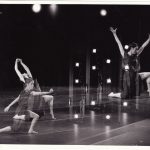Isadora Duncan workshop, March 2-4
Two choreographies by Isadora Duncan; Revolutionary Etude (1921) and Prelude (1908)
Kathleen Quinlan Zetterberg, one of the world’s most renowned interpreters of Isadora Duncan’s choreography, will be sharing her expertise with us.
Isadora Duncan (1877-1927) was a revolutionary in the art of dance and brought it to a whole new level. The music she danced to, composed by Beethoven, Mozart, Chopin, Schubert, Brahms, Skrjabin and Wagner, was considered up until then to have a higher artistic value than dance. Her dances reflected upon the human condition within the politics of the day but used more abstract themes, posing it in complete opposition to the traditional narrative of ballet. Isadora also transformed the scenography of dance by proposing a stripped down version of the stage where the costumes consisted of unadorned tunicas that would allow for the emphasis to remain on the movements and the music. What can we learn from her dance in our day and age?
Originally from New York City Kathleen Quinlan Zetterberg did her studies at the Boston Conservatory of Music, Boston Museum School of Art and S.U.N.Y. Purchase. She has been a resident of Stockholm ever since 1987. Kathleen was a soloist in Anna Sokolow’s dance company in NYC and is one of the world’s most prominent savants in the tradition of Isadora Duncan. As a choreographer Kathleen has worked in dance, theatre and opera in New York and Paris. Accompanied by the pianist Roland Pöntingen she has travelled throughout the Nordic countries with an Isadora Duncan tribute tour. Furthermore, she has produced two exhibitions on Isadora Duncan at the Museum of Dance in Stockholm. Ever since 1989 she has been a close collaborator with Ika Nord as the choreographer in her performances. Kathleen Quinlan is the founder and artistic director of the Lilla Baletten/Isadorables at Sensus in Stockholm as well as an instructor of modern dance at the Royal Swedish Ballet School.

